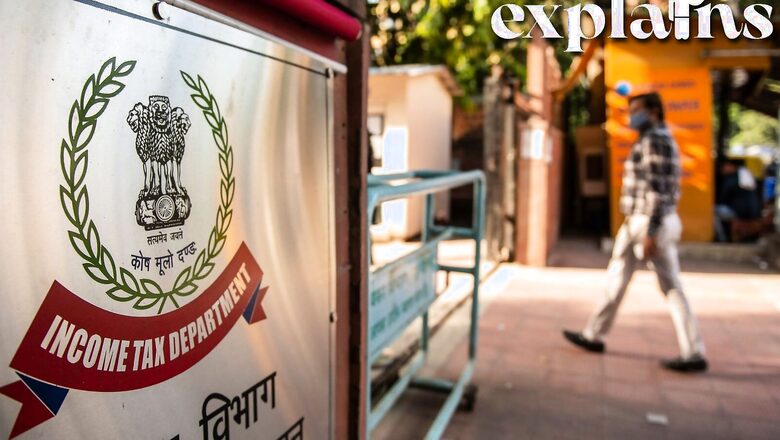
views
The Income Tax Department on Tuesday conducted a survey operation at the BBC’s offices in Delhi and Mumbai as part of an investigation into alleged tax evasion, officials told PTI. LIVE UPDATES
READ MORE | Income Tax ‘Surveys’ at BBC Offices: Who Owns the BBC? Explained
The surprise action comes weeks after the broadcaster aired a two-part documentary, “India: The Modi Question”. The action, it is learnt, was initiated by the director general of the Income Tax Department in Mumbai across three premises.
The synchronised surprise action began at 11 am with I-T officials reaching the BBC offices in Delhi and in Mumbai. BBC staffers were asked to keep their phones at a particular spot inside the premises, officials said.
The department is looking at documents related to the business operations of the London headquartered public broadcaster and its Indian arm, they said.
The investigation is linked to international taxation issues of BBC subsidiary companies, sources told PTI.
As news spread, onlookers and media crews were seen outside the BBC office at central Delhi’s Kasturba Gandhi Marg. In Mumbai, the office is in Santa Cruz.
As part of a survey, the Income Tax Department only covers the business premises of a company and does not raid residences and other locations of its promoters or directors.
What exactly is a survey?
Surveys are conducted by tax officials to uncover hidden or unreported income and property. The primary goal here is to gather information.
A survey also determines whether or not a person or business has correctly maintained its books of accounts, a report by Business Standard explains.
It is governed by Section 133A of the Income Tax Act of 1961, which was added in 1964. The Finance Act of 2002 made several amendments to the section.
A Search
In tax evasion cases, searches are extensive investigations of buildings, places of business, and other locations to identify concealed income or riches. The authorities are also given the authority to seize documents, assets, bullion, and other items that have been kept from them. That is why they are referred to as “search and seizure” operations.
It is commonly referred to as a “raid,” but no such term appears in the I-T Act of 1961. Section 132 of the I-T Act authorises searches.
What distinguishes surveys from searches?
- Surveys can be done throughout business hours, and searches are not limited in any way.
- Searches allow for the seizure of unaccounted-for assets; nevertheless, authorities must use caution during searches or risk being held liable for impounding, the report by Business Standard says.
- In the event of non-cooperation, officials may break through any door or window; however, nothing of the sort can be done during surveys.
- Surveys are a gentler version of search operations. The primary goal of surveys is to gather information. The fundamental goal of a search and seizure is to identify unaccounted riches and documents of such transactions.
- The surveys can only be done during the hours that the company is open for business. Searches, on the other hand, can be conducted at any time.
- Surveys can only be conducted in the location where the business or profession is carried out. There is no such restriction in search operations.
- Prior to the Finance Act of 2002, authorities had no authority to take any asset during surveys. However, with the modification, the authorities may seize the seized books and documents, but only after recording the reasons for doing so. They cannot also be held for more than ten days without the authorization of the Chief Commissioner, Commissioner, Director General, or Director.
- Except for stock-in-trade, authorities can confiscate any document or asset during a search and seizure action. If they are not given the keys, they can break any lock. For the entire process, they can enlist the assistance of police officers or any other central government officer.
- With inputs from PTI
Read all the Latest Explainers here


















Comments
0 comment